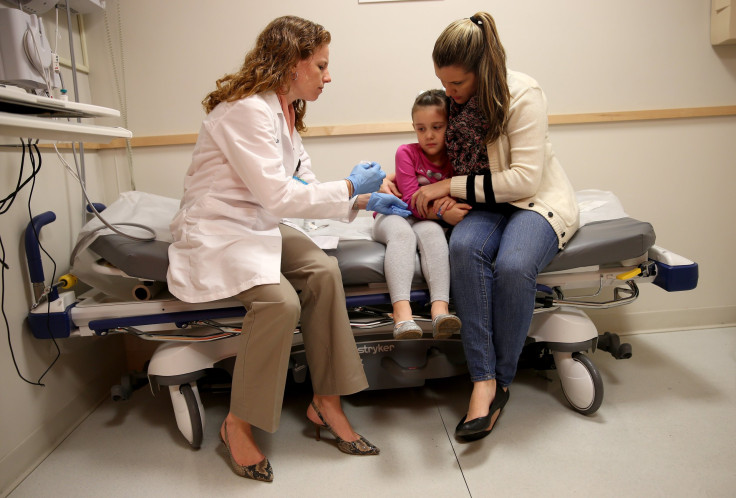Vaccination Schedule For Children: Doctors Allow Immunization Delays, Per Parents' Requests: Survey

If parents ask a doctor to delay vaccinations for their children, most pediatricians and family doctors will agree to do so, a survey published Monday by the journal Pediatrics found. Such requests were frequent, with 93 percent of doctors reporting that in a standard month, at least some parents with children under the age of two would ask to spread out vaccines in a way that does not adhere to recommended schedules.
The survey results come amid a heated debate over those who choose not to vaccinate or decide to vaccinate on their own timetables. 154 people have contracted measles so far this year in the the U.S. in an outbreak that has expanded to Mexico and Canada and sparked a politicized discussion over vaccinating and especially over government recommendations and guidelines for when and how to do so. On the recommended vaccination schedule, within the first two years of their lives, children are supposed to receive a slew of vaccinations, including for hepatitis, measles, chickenpox and other diseases.
The survey's results suggested that although doctors did not necessarily agree with the practice of not adhering to recommended vaccination schedules, most felt some sort of pressure to agree to do so. Of the doctors who responded to the survey, 87 percent thought that parents who wanted to delay vaccines or spread them out beyond the recommended vaccination schedule were putting their children at risk. Yet 82 percent said that agreeing to requests would build trust with those families, and 80 percent said they feared that if they did not adhere to parents' requests, they might leave the doctor's practice.
"Virtually all providers encounter requests to spread out vaccines in a typical month and, despite concerns, most are agreeing to do so," the study's abstract concluded. "Evidence-based interventions to increase timely immunization are needed to guide primary care and public health practice," according to the abstract. For the survey, 534 pediatricians and family physicians in the U.S. were surveyed by mail and email from June 2012 to October 2012. It is unclear what the poll's margin of error was.
© Copyright IBTimes 2024. All rights reserved.












